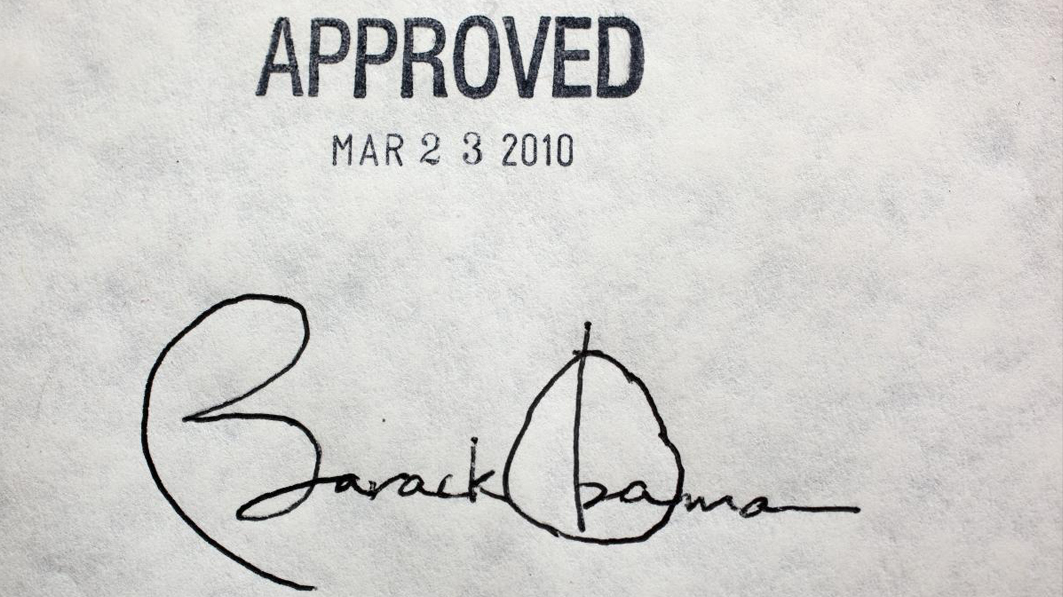Obamacare’s constitutionality was questioned in oral arguments at the Supreme Court today in a case that pits a number of red states and the Trump administration, who argued in favor of striking down the 2010 healthcare law, against various blue states who defended the law’s constitutionality.
When the oral arguments were over, it looked as though there were at least five votes to sustain the law’s continued viability. The case, California v. Texas, started in the federal courts of Texas after Congress in 2017 zeroed out the “individual mandate,” which is the penalty (or tax, if you will) that people would be required to pay for not buying health insurance. When Congress took that action, the lawsuit followed.
The case hinges on the argument that the individual mandate was a “linchpin” of Obamacare, aka the Affordable Care Act (ACA), and that after Congress’ action to eliminate it, the entire purpose of the law was frustrated and therefore must be struck down. In legal terms, the issue is whether the individual mandate is “severable” from the ACA or not. If it is, and is struck down, the rest of the ACA survives. If it is not severable, the entire ACA would be struck down.
The question the justices struggled with was, “What did Congress intend?”
The questioning today indicated that both Chief Justice John Roberts and Justice Brett Kavanaugh are likely to join with the court’s three liberals, Justices Stephen Breyer, Sonia Sotomayor and Elena Kagan, to hold that the individual mandate is severable, thus saving the rest of the healthcare law.
Many of the law’s fans feared they would lose their health insurance, or be denied health insurance, if the law is struck down. Many of the law’s features, such as no denial for pre-existing conditions and coverage of dependent children until age 26, are hugely popular. On the other hand, the ACA was sold to the public on the promise that people’s insurance costs would go down and that they would be able to keep their insurance policies and their physicians, which all proved untrue.
Republicans have tried numerous times to repeal and replace Obamacare with something more workable and less expensive but have failed to muster the necessary votes. Zeroing out the individual mandate penalty was one of the few successful legislative moves the GOP managed.
During the teleconferenced oral arguments, Justice Kavanaugh was frank in his analysis of the case.
“This is a fairly straightforward case for severability under our precedents, meaning that we would excise the mandate and leave the rest of the act in place.”
For his part, the Chief Justice seemed to agree. In referring to the 2017 action of Congress in removing the individual mandate’s penalty, Roberts said, “Would Congress want the rest of the law to survive if the unconstitutional provision were severed? Here, Congress left the rest of the law intact. That seems to be a compelling answer to the question.”
Ten years after Obamacare was enacted, the case for amending or replacing it looks to be squarely back in the hands of Congress, if the court upholds it in this case as expected. A decision is expected in this case sometime next year.
Photo from Obamalibrary.gov






